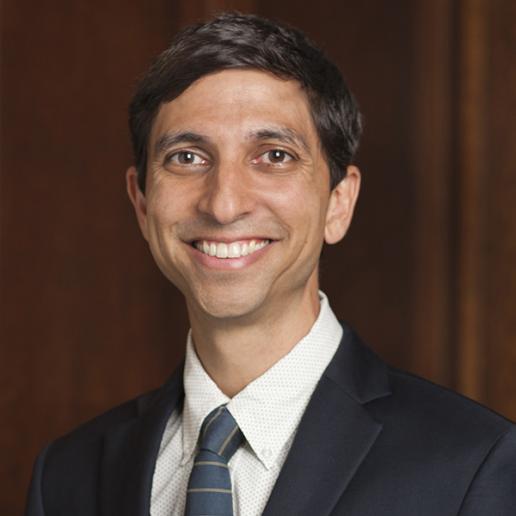Onil Bhattacharyya, M.D., Ph.D., a 2015–16 Canadian Harkness/CFHI Fellow, is Director of the Institute for Health Systems Solutions and Virtual Care (WIHV) and Frigon-Blau Chair in Family Medicine Research at the Women’s College Hospital in Toronto, Ontario, Canada.
Mentors: Eric Schneider, M.D., M.Sc., Commonwealth Fund; David Blumenthal, M.D., M.P.P., Commonwealth Fund
Placement: The Commonwealth Fund
Harkness Project Title: How Do Leading Organizations Address Emerging Challenges and Opportunities?
Biography at time of Harkness Fellowship: Onil Bhattacharyya, M.D., Ph.D., is a 2015–16 Canadian Harkness/CFHI Fellow in Health Care Policy and Practice. He is currently the Frigon-Blau Chair in Family Medicine Research and a family physician at Women’s College Hospital, as well as an associate professor in the Department of Family and Community Medicine and Health Policy, Management and Evaluation at the University of Toronto. Bhattacharyya is co-lead of BRIDGES: Building Bridges to Integrate Care, an Ontario Ministry funded initiative to incubate and evaluate new models of care for complex chronic disease. He is co-lead of the Toronto Health Organization Performance Evaluation group (T-HOPE), which works with management and medical students to study social enterprises in health in low- and middle-income countries. He was a Takemi Fellow at the Harvard School of Public Health and has an M.D. from the University of Montreal and a Ph.D. in health services research from the University of Toronto.
Project: How can health organizations improve care, address emerging challenges and take advantage of emerging opportunities that could transform health care? Organizations can operate at 3 horizons: 1) improving existing processes, 2) develop new business models, or 3) develop new models that could disrupt your current business. An emerging challenge like the care of high-cost, high-needs patients has required a broad change in how care is provided (the business model). An emerging opportunity is consumer-facing information technology (IT) solutions, which may fundamentally change the relationship between patients and providers. This study will explore how leading institutions have addressed these two areas as examples of horizon 2 (searching for new business models) and 3 (exploring disruption of current models). It will begin with a review of potential processes from other industries that can be explored in in-depth case studies in health care. Case studies will be conducted on organizations that have successfully redesigned care for high-cost, high-need patients and engaged with consumer facing IT. I will sample purposively from “startup” healthcare organizations built to address these issues, and established providers who have adapted to incorporate them. Changes in payment models like Accountable Care in the United States will encourage organizations to explore these opportunities and challenges, which are common to many industrialized countries.



